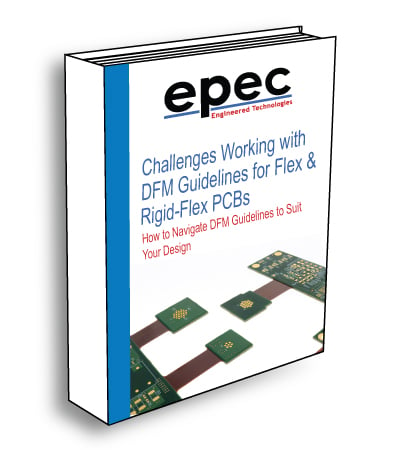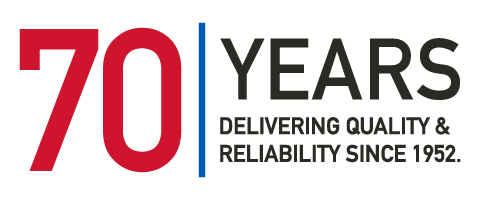Flex & Rigid-Flex Circuit Assembly Pre-Bake Specifications
Flexible Polyimide materials used in the fabrication of flexible and rigid-flex circuits are hydroscopic up to 2-3% by weight and as such require a thorough pre-bake to eliminate all moisture prior to any assembly process. This is an inherent property of the materials and is independent of the manufacturer and or the brand of polyimide materials used.
The industry accepted standard is to pre-bake all flex circuits immediately prior to assembly and without exceptions, even if the product has recently been received from the supplier in a vacuum sealed package. Baking the product prior to packaging does not eliminate the need for pre-baking prior to assembly.
Failure to remove all moisture is the primary cause of coverlay delamination, layer to layer delamination, and stiffener delamination. The root cause being the conversion of the entrapped moisture to steam at assembly re-flow temperatures. The expansion of the steam results in the delamination.
It is recommended that the flex PCB parts be pre-baked at 120°C. The duration of the pre-bake will vary depending upon the design of the specific parts. Layer count, stiffeners, and flex circuit construction are factors that will increase the pre-bake time required. Pre-bake times will vary from minimum of 2 hours up to 10 hours for high layer count flex circuit designs.
IPC 2223C Sectional Design Standard for Flexible Printed Boards
Source - IPC 2223C, Section 5.3.5
If the dielectric s not free of moisture, soldering temperatures may cause entrapped moisture to boil. Depending on the amount of moisture present when the flexible circuit reaches the soldering temperature, delamination may be violent, literally blowing the circuit apart, or mild, producing small blisters, which could grow info serious delaminations. Bake out shall be a standard process for mitigating moisture / blow-out risks. The lapsed time between baking and subsequent soldering operations is also important. Generally flex and rigid- flex printed boards require longer bake out times than equivalent rigid printed boards.
IPC FA 251 Assembly Guidelines for Singled Sided & Double Sided Flexible Printed Circuits
Source - IPC FA 251, Sec: 3.2.1.1.2
Flexible dielectrics and adhesives absorb moisture. There are significant differences i.e.: absorption characteristics among materials. In addition the assembler may be forced to confront entrapped solvents which have not been completely withdrawn from the FPC during the manufacturing process. It is recommended that manufacturer or process engineer include a prebake cycle to drive out moisture entrapped or absorbed during storage, manufacturing or handling. The cycle time and temperature will vary with the combination of adhesives and dielectrics used. A typical cycle is 121°C for 30-60 minutes.
DuPont Pyralux® Flex Materials Baking Recommendations Prior to Reflow
Source - Pyralux® Technical Manual page 5.23
We recommend that boards made with Pyralux® Flex materials are baked prior to exposure to solder processes (e.g. solder leveling and reflow). Boards are generally baked at 250°F (121°C) from two to ten hours, depending on the board thickness and design. Baking removes any moisture that may have been absorbed during processing. Polyimide films absorb moisture quickly; therefore, soldering and reflow should be done within 30 minutes after baking.
Vacuum ovens are also used to remove water. Lower temperatures, such as 150-175°F (65-80°C) can be used. This method also reduces the oxidation of the exposed copper pads.
Flexible circuit boards should be baked prior to soldering by hand, wave, IR and Vapor Phase soldering. This bake is typically done at 250°F (121°C) for two to ten hours, * depending on the board thickness and design.
Note: Moisture Absorption
- Kapton® NH: 2.8%
- Pyralux® LF: 1.8%
- Pyralux® RF: 1.8%
* Times may vary based on type of materials in board, layer count, % copper ground planes, size of board, room/area conditions (%RH) etc.
Avoid Delamination and Boost Assembly Success
Do you pre-bake your flex PCBs? Learn more with our comprehensive guidelines. Consult an Epec engineer for your next project.
Request a Quote Request Design Support Request More Information



